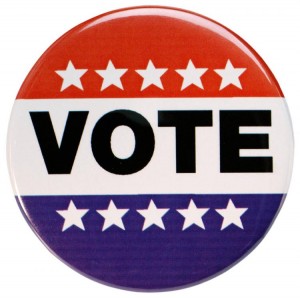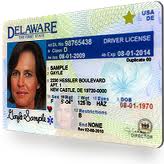
Facebook Twitter Pinterest Flickr Google+ YouTube Instagram
Written on: November 13th, 2012 by: in Blog Posts, News, Reading
 Americans have discovered eBooks in a big way. In 2012, for the first time, publishers have reported that eBook sales have exceeded the sales of hardcover books. Libraries have not ignored these trends, and Delaware libraries loan eBooks to their patrons for no charge.
Americans have discovered eBooks in a big way. In 2012, for the first time, publishers have reported that eBook sales have exceeded the sales of hardcover books. Libraries have not ignored these trends, and Delaware libraries loan eBooks to their patrons for no charge.
Delaware public library patrons have had access to eBooks and eAudiobooks for less than a year, and they have discovered just how easy it is to borrow titles for their Kindles, Nooks, and iPads, etc.
Book lovers have been borrowing over 11,000 titles every month – an average of almost 400 per day! And during the recent storm eBook checkouts increased 42% during the 4-day event. It’s really easy to start using these resources—all you need is a valid library card from any Delaware public library.
If you prefer to read your titles on your e-reader or tablet, the Delaware OverDrive collection is the place to go. This collection contains popular fiction and nonfiction titles to choose from. Many current bestsellers are included, as are titles for teenagers and kids. To use this collection, go to www.delawarelibraries.org, click on the eBooks & eAudiobooks tab and navigate to the OverDrive site. Or, if you have a tablet or smartphone, you can download the free OverDrive app for a truly seamless eBook experience.
Whatever e-format you are looking for, and no matter what sort of device you own, you can find a title you want to read or listen to from a Delaware library. Try it today!
Written on: November 11th, 2012 by: in Blog Posts, Q & A's
Q: “Is it true that water goes down a drain in the opposite direction when you cross the equator?”
 This question is a popular one! To determine the truth behind this myth, we need to consider some factors, but science sources agree that the reason for the swirling of a large body of water or even how a hurricane moves is due to something called the Coreolis Effect. The complication is that water pouring down a drain or toilet is too small of an amount to demonstrate the true Coreolis Effect as Matthew Feinstein states on the 1996 online document “Which way will my bathtub drain?: “There is a real effect, but it is far too small to be relevant when you pull the plug in your bathtub.” It’s easy to influence the way the water drains simply by adding a little momentum, even if the angle of water coming into the basin or tub is slight.
This question is a popular one! To determine the truth behind this myth, we need to consider some factors, but science sources agree that the reason for the swirling of a large body of water or even how a hurricane moves is due to something called the Coreolis Effect. The complication is that water pouring down a drain or toilet is too small of an amount to demonstrate the true Coreolis Effect as Matthew Feinstein states on the 1996 online document “Which way will my bathtub drain?: “There is a real effect, but it is far too small to be relevant when you pull the plug in your bathtub.” It’s easy to influence the way the water drains simply by adding a little momentum, even if the angle of water coming into the basin or tub is slight.
However, if the body of water that is going down a hole is large enough, then yes, water will rotate in the opposite direction (clockwise) in the Southern Hemisphere. As Dave Van Domelen wrote in 1996, “The results were that after you carefully control all the variables (use a large wooden tub, control the temperature throughout the tub, have the drain be a tube extending up into the tub to avoid friction effects with the tub walls, start the water off spinning the “wrong” way, etc) and wait 18 hours for the water to settle down, water does indeed spiral down the sink opposite directions in the two hemispheres. But this effect is so subtle that it wouldn’t ever be seen in your bathroom sink.”
The movement of air also shows the Coreolis Effect; we have seen the huge spiral counterclockwise rotation of hurricanes. The Little Shop of Physics from the Colorado State University’s site offers a good explanation and even an experiment you can replicate at the end of their article.
To see the Coreolis Effect in action (as an experiment) watch the brief movie of kids with a ball on a simple merry-go-round at the end of the ‘Real Life Example’ in the article called “The Coreolis Force” from the University of Illinois. It is amazing to think that we see the ball moving in a straight line from above, but its path is actually curved!
Thank you for this great question! Librarians often learn something new while helping our patrons and students find information, and this is no exception. Please feel free to ask questions of your Delaware Libraries anytime, in person or online using our live, chat library service called Ask a Librarian Delaware. We appreciate your service very much! We hope to see you in our libraries and online using our resources soon!
Written on: November 7th, 2012 by: in Blog Posts
According to the “2009 Caregiving in the U.S. report by the National Alliance for Caregiving and AARP, it was estimated that approximately 48.9 million men and women in the United States provided unpaid care to someone older than age 18. These caregivers represented an estimated 28 million households (24% of all U.S. households). The one-year economic value of this unpaid labor force was recently estimated to be $450 billion.”
If you or someone in your family is a caregiver to an aging parent, a parent to a child needing extra care, or a family member caring for someone suffering from a chronic illness or disease, the caregiving LibGuide has resources to assist you.
http://guides.lib.de.us/caregiving
Written on: November 4th, 2012 by: in Blog Posts, Q & A's
Q: “What is Daylight Saving Time? Does it really save time?”

Great question! At 2am this morning (November 4, 2012), we in Delaware (and most of the U.S.) pushed our clocks back an hour to “fall back” to Standard Time.
Daylight Saving Time was initiated many years ago as a way to extend time during the warmer months, to make it so we can have more sunlit hours during the evening. Many attribute Benjamin Franklin as the idea-maker; he is certainly one driving force behind the concept. But according to TimesUnion.com, George Vernon Hudson (a New Zealand entomologist) first proposed the application in 1895. It’s taken many years for the U.S. and other countries to adopt the idea, and adaptations have been made as travel and other life-changing inventions have made their way into our lives.
As of 2007, Daylight Saving Time (DST) begins the second Sunday in March and ends on the first Sunday in November; this is about a month more than in previous years.
Not all States and countries observe DST. According to InfoPlease, Arizona (with the exception of the Navajo Nation) and Hawaii continue with Standard Time throughout the year. US Territories Guam, Puerto Rico, the Virgin Islands and American Samoa also stay with Standard Time.
Daylight Saving Time’s history is tied in with the establishment of time zones, according to the US Department of Commerce’s National Institute of Standards and Technology. The NIST also provides a FAQ page with responses to commonly asked questions, such as “How are the Time Zone borders decided and regulated?“
Does this really save time? No matter how the day is divided, there are still 24 hours to work, play, eat, sleep, and tend to our dreams and families. It does help to feel that we have extended evening light in the spring and summer, but no matter how you slice it, a day is a day.
For further reading, see the NIST’s page “Information about the Current Daylight Saving Time (DST) Rules.” You may also be interested in some indepth looks at the history and method behind Daylight Saving Time through the eyes of various authors, such as David Prerau’s “Seize the Day: the curious and contentious story of daylight saving time”, found through your Delaware library.
Thanks again for asking! If you have further questions or need more information, please feel free to ask anytime in person and through your Internet-connected computer our live chat library chat service, Ask a Librarian Delaware. We appreciate seeing you in our libraries and online!
…Now back to sleep for one more hour!
Written on: October 27th, 2012 by: in Blog Posts
 With the first hurricane of the season seemingly headed our way, now is a good time to know how to prepare and where to find information on the storm’s progression.
With the first hurricane of the season seemingly headed our way, now is a good time to know how to prepare and where to find information on the storm’s progression.
Stay safe!
Written on: October 21st, 2012 by: in Blog Posts, Q & A's
Q: “I am getting ready to vote and want to know where the candidates truly stand on the issues. Where can I find unbiased information about that?”
The U.S. Presidential election is coming right up and it’s great you asked! There are quite a few online resources that show who are on the ballots and where they stand on issues; so many in fact, I will offer three for their reliability, neutrality, and ease of use.
1. ProCon.org offers a comparison chart that shows Presidential candidate stands on 68 issues.
2. Project VoteSmart offers a “VoteEasy” area that gives a way for you to select an issue and see how the candidates measure up.
3. 2012 Candidate Comparison gives multimedia and summaries of candidate voting histories and speeches.
You may also be interested in a previous blog posting, “Where is my voting place?” from July, 2012.
The Presidential election takes place on Tuesday, November 6, 2012. For election results, you may be interested in the Office of the State Election Commissioner’s site.
If you ever need any help finding information, please feel free to ask a Delaware librarian, anytime! You can do this in person at your local library, or online through our Ask a Librarian Delaware virtual reference service at:
http://lib.de.us/askalibrarian
See you at the polls!
Written on: October 11th, 2012 by: in Blog Posts
October is National Bullying Prevention Month, a time to shed light on a problem that affects millions of students every year. Statistics show that: 1 out of 4 kids is bullied, 160,000 students stay home from school everyday due to bullying, and 9 out of 10 LGBT students experience harassment at school and online. www.Stompoutbullying.org
The Anti-Bullying Libguide ( http://guides.lib.de.us/antibullying) has resources for kids, teens, parents, and school administrators on preventing and coping with bullying. There are also resources for adults dealing with workplace bullying and harassment.
Written on: October 7th, 2012 by: in Blog Posts, Q & A's
Q: “My Delaware driver’s license is coming up for renewal. What is the ‘federal ID’ talk I’m hearing about? Is there something different I have to do? When is the deadline?”
The Real ID act (which included the beginnings of a federally compliant driver’s license) was originally introduced during the Bush Administration in 2005 as an additional effort to fight terrorism. Each State has its own driver’s license rules. It’s not mandatory, but you can obtain a federally compliant ID or Driver’s License (since 2010) in Delaware. Just so you know, it is also called “Secure Driver’s Licenses by the Department of Homeland Security.
In fact, Delaware is one of the few states that have moved forward with a federally compliant ID. The upgraded driver’s license (notice the ‘gold star’ in the upper right corner of the license in the image) is essentially to assist the government with travel inside the US (primarily, for domestic flights), and for entry to federal buildings/locations. It does not replace a passport for international travel.
Since the bill was introduced in 2005, there have been growing concerns from all 50 states dues due to controversies surrounding a citizen’s privacy and fear of an increased exposure to identity theft with the storing of sensitive information, further immigration restrictions, the cost and staffing for implementing such a law, and concerns about Federally-mandated laws that have been individually State controlled. In fact, the US Government implemented research to study the privacy impact of the Real ID. However, more and more states are finding ways to address their home communities’ concerns while moving forward with some acceptable versions of a federally compliant license (such as Washington State’s “enhanced driver’s licenses” (see Q15 on the US Department of Homeland Security’s Secure Driver’s Licenses FAQ page).
It may be of interest for you to read the document from its source. Here is a link to the original 2005 bill.
Our federal legislators have examined and challenged pieces of this proposal, with some States refusing to participate. These have created postponements and pushed the enactment date so that a careful review can be made. As the date of inception draws near (as of this writing, it is 2014 for those born after 1964 and 2017 for those born before 1964), driver’s licenses in Delaware offer citizens a choice to obtain a Federally-compliant or non-compliant card.
According to the Delaware Department of Transportation,
“Delaware began issuing federally compliant DL/ID cards on July 1, 2010. In order to do so, we incorporated the following changes into our issuance process:
In order to obtain a federally compliant ID or Driver’s License, you will need to provide a little more identification than you have in the past. The DE DMV has a list online.
There is also a handy “Document Guide” that walks customers through what is needed, too. Just answer the questions and you end up with a tailored list.
For more information, the DMV suggests that you give them a call at 877-477-7117 or ask in person.
Here is a link to their hours and locations for all three counties
Finally, good news is that the federally compliant driver’s license (and ID) is the same price as a regular one. You can also upgrade your existing card, if desired, for a $10 fee.
Thank you for asking, and please feel free to come back to your Delaware Library anytime with questions. We appreciate your service in person and online through our Ask a Librarian Delaware virtual reference service at:
http://lib.de.us/askalibrarian
We’re glad to be of assistance and we’re 247!
Written on: September 30th, 2012 by: in Blog Posts, Q & A's

Q: “Please tell me the process and documents required to leave instructions as to what is to happen to my animals should I pass away before them.”
Consideration for our pets’ well-being while we are their caregivers may very well extend into a time when we are gone and they are still living. Here are some resources to help with planning for this possible situation.
The American Humane Society offers a good starting place, with an article on their website called “Providing for Your Pet’s Future Without You.”
Although this article is dated 2010, the information it gives is pertinent today. The document linked in that article offers ideas for notifying emergency personnel, and for giving specific information about your pets to family, neighbors and friends.
Information about leaving a trust fund can start with a site devoted to laws and animals, called “Animal Law: Animal Legal and Historical Center” from Michigan State University’s College of Law. As the site states, “A pet trust allows a person to set aside a sum of money to care for the pet.” I limited my search on this site to Delaware and Trusts/Wills and came to a page that describes how to get started by Rebecca F. Wisch.
An article posted in the Seattle Times by Neena Pelligrini called “Legal Q&A: Pets, wills and animal trusts (July 16, 2012) , describes what commonly happens to pets when no will or legal arrangements have been made; that “generally will treat the animal companions as estate property, passing to heirs per the state’s intestacy laws”. The article gives guidelines for how to leave enough provisions for each pet, to help ensure they are taken care of for their normal lifespans. For example, a rule of thumb for determining a well funded trust is to calculate an average expense of $1,000 per year.
The American Association of Retired Persons (AARP) also offers tips for caring for pets when they outlive their owners with an article called “In Pets We Trust” by Laura Daily (2008). The article mentions a DIY (do-it-yourself) kit for creating a trust in accordance with the state in which you live. They also suggest to “name someone other than the caregiver as trustee to dole out the cash. This reduces the risk of someone taking the money, but selling or destroying your pet.”
The ASPCA offers a Pet Trust Primer by Kim Bressant-Kibwe, Esq. which gives succinct considerations for helping to ensure the trust you may establish is thorough and complete.
Finally, for Delaware residents, Trusted Pet Partners gives specific instructions in accordance with Delaware State law called “Responsible Pet Parenting” by Chris Jones (2012).
These resources should give you enough information to be able to make informed decisions for establishing a plan for your pets’ care if you happen to outlive them, whether you have parrots, horses, dogs, cats, turtles or other common animal companions. Thank you again for asking!
Feel free to come back to your Delaware Library if you have more questions, anytime! We appreciate your service in person and online through our 247 Ask a Librarian Delaware virtual reference service at:
http://lib.de.us/askalibrarian
We’re glad to be of assistance!
Written on: September 23rd, 2012 by: in Blog Posts, Q & A's
 Q: “Why do some people have terrible breath?”
Q: “Why do some people have terrible breath?”
According to medical resources such as the Mayo Clinic, there are a variety of reasons why a person’s breath may smell bad, ranging from poor dental care to what that person just ate or drank. When it’s an ongoing condition, it can be an indicator of an underlying illness. It is also known as “halitosis.”
Another basic definition is given by Merriam-Webster’s online dictionary.
The main causes of bad breath all focus on a person’s mouth. Dental hygiene is touted as the the most common cause as well as the most treatable prevention, as explained by WebMD . They include dry mouth, post nasal drip, and some respiratory illnesses (like pneumonia). Of course, tobacco use is another reason for stinky breath.
It’s interesting to note that some foods, such as garlic and onions, have a double way of causing bad breath. The first is through their odor lingering on a person’s tongue and mouth. The second is through the process of absorbing and digesting odoriferous foods, as explained on MedicineNet.
Sometimes we can’t tell if our own breath smells bad. According to MedicineNet, the most common method used (cupping your hand and breathing into it, then quickly smelling it) is not a good indicator. MedicineNet recommends licking the back of your hand, then letting it dry and taking a whiff (or asking someone you trust to be honest).
Halitosis doesn’t have to be an ever-lasting problem, and all sources seem to agree that the best way to create sweet-smelling breath is to brush and floss, use an antibacterial mouthwash, have regular dental check-ups, and to generally be in good health. Further reading on MedicineNet gives tips for how to control bad breath Your sweetheart, family, friends, and colleagues will be grateful!
Thank you for asking, and please feel free to come back to your Delaware Library anytime with questions. We appreciate your service in person and online through our Ask a Librarian Delaware virtual reference service at:
http://lib.de.us/askalibrarian
We’re glad to be of assistance and we’re 247!